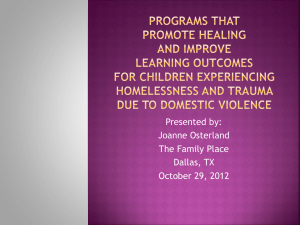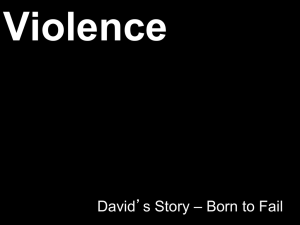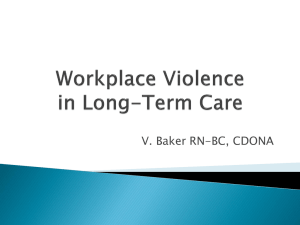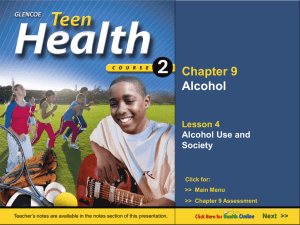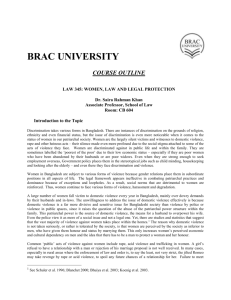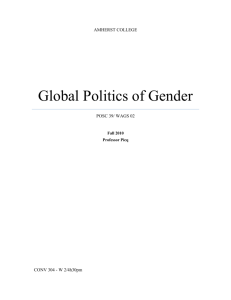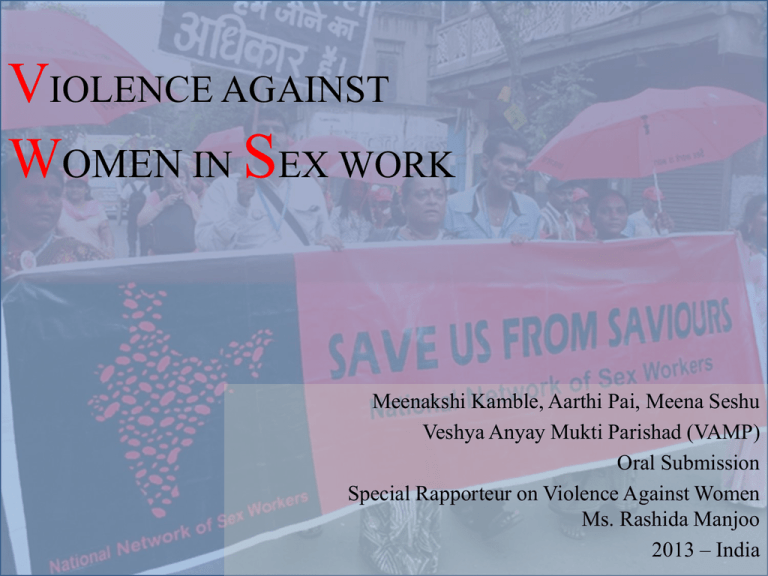
VIOLENCE AGAINST
WOMEN IN SEX WORK
Meenakshi Kamble, Aarthi Pai, Meena Seshu
Veshya Anyay Mukti Parishad (VAMP)
Oral Submission
Special Rapporteur on Violence Against Women
Ms. Rashida Manjoo
2013 – India
Violence faced by women, persons who identify as
women and transgender women in sex work
There is violence within the sex industry.
Exchange of sexual services for money does not in and of
itself constitute violence.
Adult consensual sex work does not constitute
violence. Sex workers experience disproportionate levels
of violence
Violence and exploitation is overlooked, ignored
resulting in discrimination by state and non-state actors.
Anti-trafficking laws are interpreted broadly that they
conflate voluntary sex work with the exploitative, coerced
trafficking of people for the purposes of sex.
Results in abuse and forced rescue to rescue homes/
corrective homes and destruction of homes by state
Legal framework impacting People in Sex work
• Activities related to sex work are influenced by laws
such as the Immoral Traffic Prevention Act and
Public Order that are used to harass people in sex
work
• These acts include Soliciting in Public, living off the
earnings of prostitution.
• Tremendous powers
– Given to law enforcement to conduct forced raids and rescue
and eviction of sex workers
– Judiciary to close brothels and evict sex workers
– Detain and “rehabilitate” sex workers in corrective
institutions
Consequences
• Risk of human rights violations for sex workers
deepened by criminal prohibitions of sex work.
Systematic violence documented in many settings.
• Criminal prohibitions facilitate social stigma and
marginalisation, difficult to enjoy the protection of
the law when they face violence.
• Legal provisions enables environment or harassment
and extortion by the police.
• Link between low levels of condom usage amongst
sex workers who are arrested and prosecuted.
• Criminalizing sex work undermines efforts to prevent
new infections, and hinders the provision of treatment
and care to those infected.
“Commission on AIDS in Asia and the Pacific,2008”
Recent developments
Justice Verma Commission (Appointed by the
Government of India) on the framing the
Trafficking law
“The thrust of intention behind recommending the
amendment to Section 370 was to protect
women and children from being trafficked.
The intention not intended to bring within the
ambit of the amended Section 370 sex workers
who practice of their own volition.
Recast Section 370 ought not to be interpreted to
permit law-enforcement agencies to harass sex
workers who undertake activities of their own
free will, and their clients”
Recent developments
Supreme Court on measures to address
trafficking and sex work
– Prevention of Trafficking
– Rehabilitation of sex workers who wish
to leave sex work
– Conditions conducive for sex workers
who wish to continue working as sex
workers, with dignity
Rehabilitation of sex workers should not be
coercive in any manner and it shall be
voluntary on the part of the sex worker
Recommendations
•
Trafficking should not be conflated with sex work.
•
Trafficking of Adult Persons and of Children should be dealt
with under separate laws
•
Repeal laws that prohibit consenting adults to buy or sell sex,
that prohibit commercial sex
•
Shut down compulsory detention or rehabilitation centres for
people involved in sex work or for children who have been
sexually exploited.
•
Ensure that existing civil and administrative offences such as
"loitering without purpose", "public nuisance" and "public
order" are not used to penalise sex workers.







